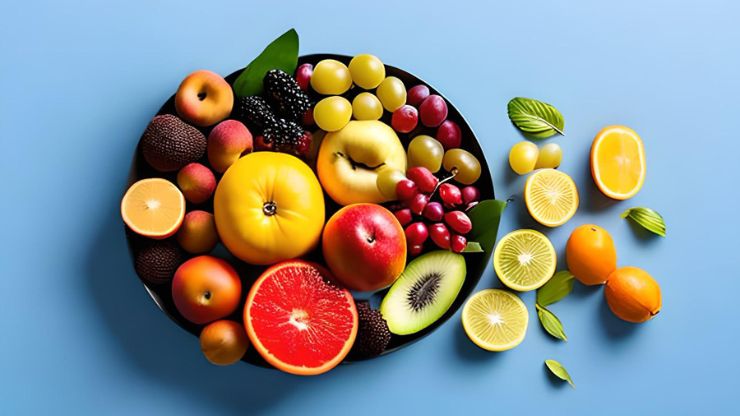Best Low Carb Fruits for a Healthy Lifestyle – In recent years, low-carb diets have gained popularity for their potential benefits in weight management, blood sugar regulation, and overall health. While these diets typically restrict the intake of carbohydrates, they don’t mean giving up on fruits entirely. In fact, including fruits in a low-carb lifestyle is not only possible but also essential, as fruits provide an array of vitamins, minerals, and dietary fiber.
This guide will explore the world of low-carb fruits and their role in promoting a healthy lifestyle. We’ll delve into the benefits of incorporating these fruits into your diet, such as weight control, blood sugar management, and improved digestive health. We will also highlight some of the best low-carb fruits, such as berries, avocados, tomatoes, lemons, limes, and watermelon, and discuss how to integrate them into your meals and snacks.
By the end of this guide, you’ll have a better understanding of how to make low-carb fruits a delicious and nutritious part of your daily routine while reaping the rewards of a balanced and healthy lifestyle.
Table of Contents
ToggleImportance of including fruits in a healthy lifestyle
Including fruits in a healthy lifestyle is of paramount importance for a variety of reasons. Fruits are not only delicious and versatile but also offer numerous health benefits that can positively impact your overall well-being. Here are some key reasons why fruits should be a fundamental component of a healthy lifestyle:
- Nutrient-Rich: Fruits are packed with essential vitamins and minerals, such as vitamin C, potassium, and folate. These nutrients are vital for various bodily functions, including immune system support, bone health, and energy production.
- Fiber Content: Fruits are an excellent source of dietary fiber, which aids in digestion, helps maintain a healthy weight, and lowers the risk of chronic diseases like heart disease and type 2 diabetes.
- Antioxidants: Many fruits are rich in antioxidants, which combat free radicals and reduce oxidative stress in the body. Antioxidants play a crucial role in preventing cell damage and reducing the risk of chronic diseases and aging.
- Low in Calories: Most fruits are relatively low in calories but high in volume, making them a satisfying and healthy choice for weight management. They can help control your appetite and reduce overall calorie intake.
- Natural Sugars: Fruits contain natural sugars like fructose, which provide a sweet taste without the added sugars found in many processed foods and sugary snacks. This makes fruits a healthier alternative for satisfying your sweet cravings.
- Hydration: Many fruits have high water content, which contributes to hydration and helps maintain proper bodily functions. Staying well-hydrated is essential for overall health.
- Disease Prevention: Regular fruit consumption has been linked to a reduced risk of various chronic diseases, including heart disease, stroke, certain cancers, and hypertension.
- Weight Management: Fruits can be a valuable part of a weight management plan due to their low energy density and fiber content, helping you feel full while consuming fewer calories.
Also, Read – Healthy Flight Snacks
Best Low Carb Fruits for a Healthy Lifestyle
Berries
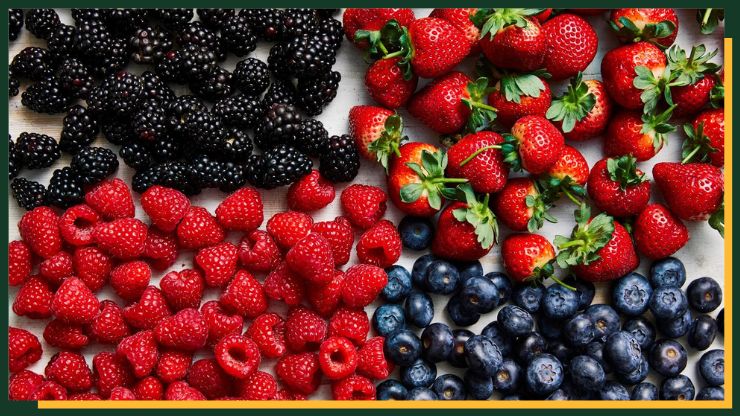
Berries, such as blueberries, strawberries, raspberries, and blackberries, are ideal for a low-carb lifestyle. They’re rich in flavor, low in carbohydrates, and high in fiber. These nutritional powerhouses offer antioxidants, vitamins, and minerals while helping to keep blood sugar levels in check.
Berries make a delicious addition to yogurt, smoothies, salads, or as a snack on their own. Their natural sweetness satisfies cravings without causing significant carb spikes, making them a perfect choice for those aiming to reduce sugar and stay on track with their healthy eating goals.
Avocado
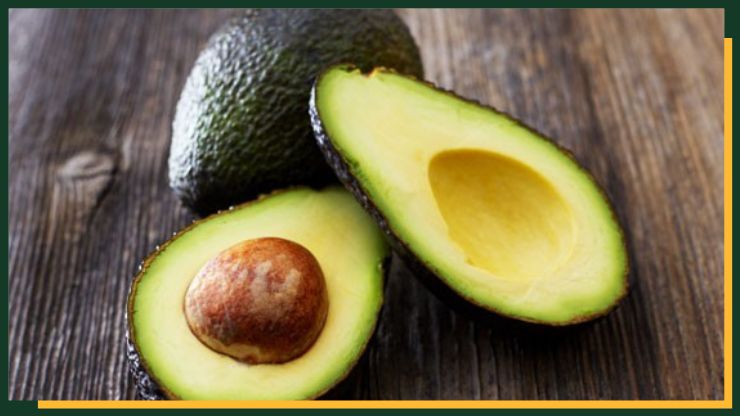
Avocado, often considered a superfood, is an exceptional addition to a low-carb lifestyle. While technically a fruit, avocados are incredibly low in carbohydrates and brimming with healthy monounsaturated fats, fiber, and essential nutrients.
They contribute to a feeling of fullness and can aid in weight management. Avocados are also a source of potassium, vitamin K, and folate, promoting heart and bone health. Their creamy texture enhances a variety of dishes, from salads to smoothies.
Whether sliced, mashed for guacamole, or used as a spread, avocados provide a satisfying and nutritious option for those seeking a low-carb, wholesome diet.
Tomatoes

Tomatoes, though botanically a fruit, are a versatile and low-carb addition to a healthy diet. They’re relatively low in carbohydrates and offer a host of benefits. Tomatoes are rich in vitamins like C and K, as well as antioxidants such as lycopene, which has been linked to various health advantages, including reduced risk of chronic diseases.
These juicy, red gems can be enjoyed fresh in salads, as a base for sauces, or roasted for added flavor and texture in numerous dishes. Their natural sweetness and acidity make tomatoes a tasty and nutritious choice, whether you’re managing your carb intake or simply aiming for a well-rounded diet.
Also, Read – Best Teas for a Longer and Healthier Life
Lemons and Limes
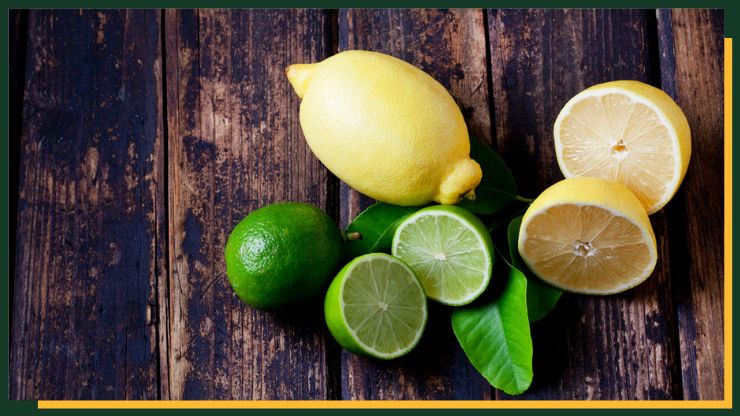
Lemons and limes, while low in carbohydrates, add zesty flavor and versatility to a low-carb lifestyle. These citrus fruits are refreshing and packed with vitamin C, which supports your immune system and overall health.
They also contain antioxidants that may have potential health benefits. While their natural sourness might limit consumption in large quantities, you can use them to enhance the taste of water, salads, marinades, and a wide range of recipes without significantly increasing your carb intake.
Their tangy essence not only adds deliciousness to your dishes but can also help reduce the need for excess salt, making lemons and limes valuable additions to a well-balanced, low-carb diet.
Rhubarb
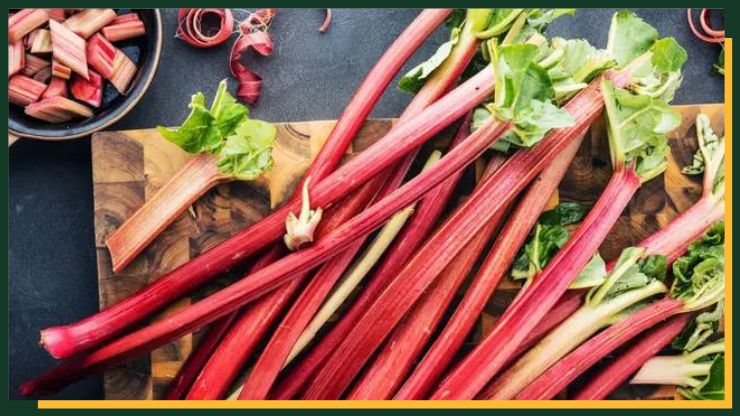
Rhubarb is a unique and low-carb vegetable that’s often treated as a fruit in culinary applications. It’s prized for its tart flavor and versatility in both sweet and savory dishes. Rhubarb is remarkably low in carbohydrates and provides essential nutrients like vitamin K and calcium.
This nutrient-packed vegetable can be used in pies, crisps, compotes, and sauces, often sweetened with low-carb sugar substitutes.
Don't just scroll, subscribe!
BuzzTrail's unique web-stories are the cure for boredom you've been waiting for.
Its tangy taste adds a delightful contrast to other ingredients, making it a fantastic choice for those seeking to maintain a low-carb diet while still enjoying a variety of flavorful recipes. Just be cautious when using it in recipes that require added sweeteners, as that can increase the carb content.
Watermelon

Watermelon is a refreshing and hydrating fruit that can be included in a low-carb diet, but it should be consumed in moderation. It’s relatively low in carbohydrates compared to some other fruits, making it a better choice for those watching their carb intake.
Watermelon is packed with water, vitamins, and minerals, which can be beneficial for overall health. However, it does contain natural sugars, so portion control is key.
Enjoying a small serving of watermelon can satisfy your sweet tooth and provide a burst of hydration without significantly spiking your carb intake, making it a suitable occasional treat for individuals on a low-carb lifestyle.
Cantaloupe
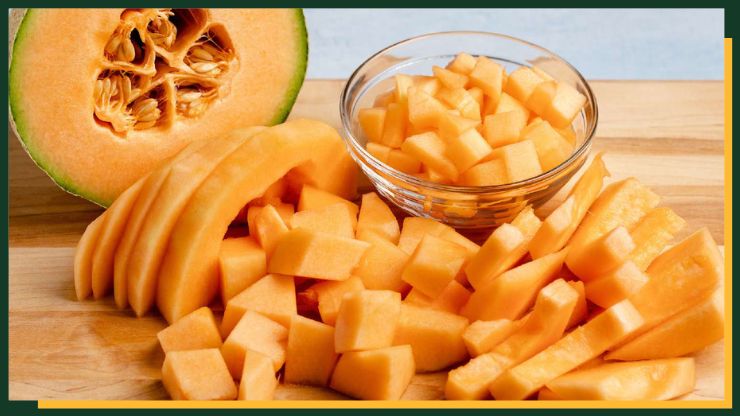
Cantaloupe is a moderately low-carb fruit that can be enjoyed in moderation within a low-carb diet. It’s sweet, juicy, and offers a good dose of vitamins A and C, as well as other essential nutrients. While it’s not as low in carbohydrates as some other fruits, it can still be included in your diet, provided you manage your portion size.
A 1-cup serving of cantaloupe contains about 12 grams of carbohydrates. Its natural sweetness can be a satisfying alternative to higher-carb desserts. Just be mindful of your total carb intake and consider incorporating cantaloupe as an occasional treat to stay within your dietary goals while relishing its flavor and health benefits.
Cranberries

Cranberries are a low-carb fruit that can be a flavorful addition to various dishes. They are known for their tart taste and are packed with antioxidants, fiber, and essential nutrients. Cranberries are especially celebrated for their potential benefits in urinary tract health.
When consumed in moderation, cranberries can be a suitable choice for a low-carb diet. Fresh cranberries have approximately 4 grams of carbs per 1/2 cup, making them a versatile ingredient for sauces, baked goods, or as a tangy addition to salads.
Just be cautious with added sugars when using cranberries, as many cranberry products are sweetened. Incorporating fresh or unsweetened cranberries into your recipes can offer a low-carb twist to your meals.
Kiwi

Kiwi is a moderately low-carb fruit that adds a burst of vibrant flavor to your diet. Each green kiwifruit contains approximately 12 grams of carbohydrates, but it’s also rich in fiber, vitamins C and K, and various antioxidants.
While it’s higher in carbs compared to some other low-carb fruits, kiwi provides a host of health benefits. Its unique sweet-tart taste makes it a delightful addition to salads, smoothies, or enjoyed on its own.
The fiber in kiwi promotes digestive health, and its vitamin C content supports the immune system. When consumed in moderation and as part of a balanced low-carb diet, kiwi can be a tasty and nutritious choice for those looking to maintain their carb intake.
Papaya
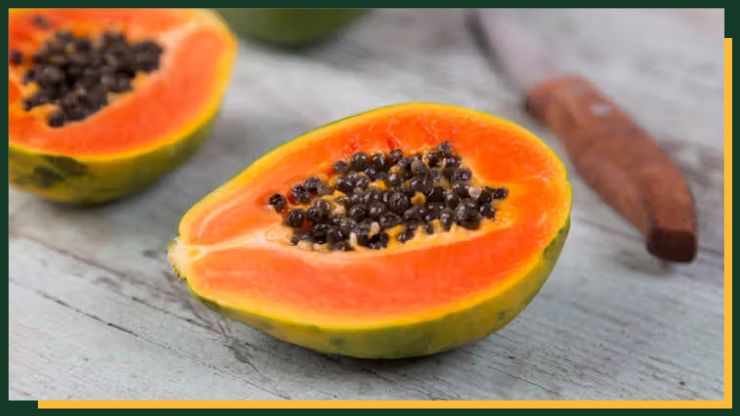
Papaya is a tropical fruit that’s relatively low in carbohydrates and offers numerous health benefits. With around 11 grams of carbs per 1-cup serving, it’s a flavorful addition to a low-carb diet. Papayas are rich in vitamin C, vitamin A, fiber, and various antioxidants, which can support overall health.
The fruit’s natural sweetness and vibrant orange color make it an appealing choice for snacks, smoothies, or fruit salads.
Papaya also contains an enzyme called papain, known for aiding digestion. When enjoyed in moderation, papaya can be a refreshing, low-carb fruit option that provides essential nutrients and a tropical twist to your diet.
Conclusion
In conclusion, the importance of including fruits in a healthy lifestyle cannot be overstated. Fruits offer a multitude of essential nutrients, fiber, and antioxidants while contributing to weight management, disease prevention, and overall well-being.
Their natural sweetness and versatility make them a delicious and nutritious addition to any diet. By making fruits a consistent part of your daily food choices, you’re not only promoting good health but also savoring the diverse and vibrant flavors nature has to offer. So, embrace the bounty of fruits and savor the benefits of a healthier, more enjoyable life.
FAQs
What is the definition of “low-carb” when it comes to fruits?
What is the definition of “low-carb” when it comes to fruits?
Low-carb fruits typically contain fewer carbohydrates compared to other fruits. They usually have a net carb content of around 5-10 grams or less per serving.
Can I eat fruits on a low-carb diet?
Can I eat fruits on a low-carb diet?
Yes, you can still enjoy fruits on a low-carb diet. While some fruits are higher in carbohydrates, there are low-carb options like berries and certain citrus fruits that can be included in moderation.
What are the best low-carb fruits for weight loss?
What are the best low-carb fruits for weight loss?
Berries, such as strawberries, blueberries, raspberries, and blackberries, are excellent choices for weight loss due to their low carbohydrate content and high fiber content. Avocado is another low-carb fruit that can support weight loss.

